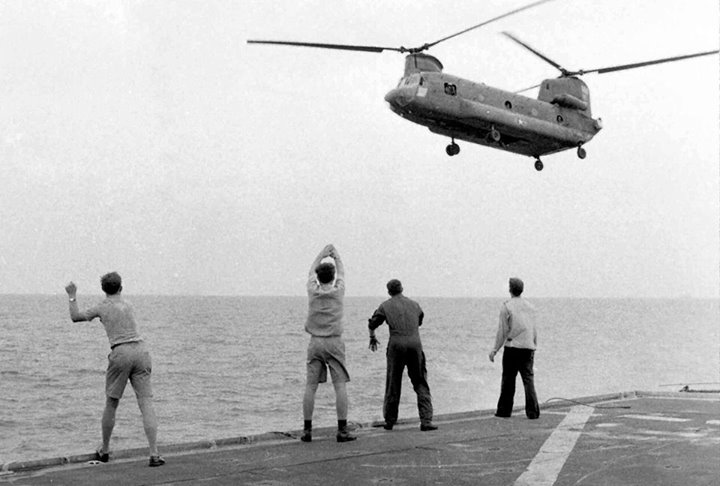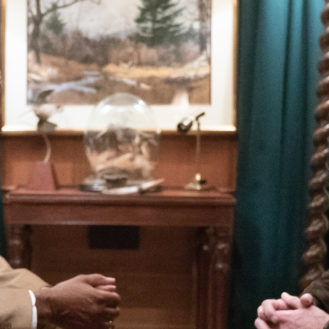By: Gesilayefa Azorbo
Last Days in Vietnam, directed by Rory Kennedy, is a gripping look back at the massive, often unsanctioned evacuations of South Vietnamese citizens and Americans in Vietnam that were undertaken in the chaotic final days of the Vietnam War. This is a story told through meticulously researched archival footage and interviews with key players in the US and Vietnamese military and state departments – including Henry Kissinger himself – as well as individual citizens impacted by the events and their surviving family members.
It starts out with everyday scenes in the streets of Saigon, in April 1975, two years after the withdrawal of US troops, and right before the country is dipped back into chaos by the arrival of the Communist North Vietnamese troops. The first voice you hear is that of Stuart Herrington, an Army Captain working in South Vietnam in the final days of the war, saying, “As we began to contemplate evacuation, the main question, the burning question, was, who goes, and who gets left behind?”
As he says later, “It was a terrible moral dilemma for everyone involved.”
These two statements set up the high stakes for the film, and the rest of it plays out like a gripping thriller, supplanted with the gritty reality of archival footage documenting the descent into disorder.
Much has been said about the Vietnam War, and many films, fiction and non-fiction, have explored the devastating conflict. What Last Days does to set itself apart is delve deeply, through interviews with several key figures on the ground – civilians as well as military and embassy personnel, and officials in the US state department – into the policy decisions made after the supposedly war-ending Paris Agreement, and the immediate impacts of these policies on the people of South Vietnam, as well as the Americans who had become invested in their lives.
It is a stunning film that delves into the very real human stories on both the American and Vietnamese sides, and reveals tales of moral courage and defiance of institutional rules in a bid to save as many lives as possible from the violence that followed in the path of the North Vietnamese army, who were rapidly overcoming the depleted South Vietnamese troops and rolling on unchallenged in the absence of American troops.
The film masterfully weaves the narrative together through archival footage, wide-ranging interviews containing vivid recollections from high-level officials and the survivors of the evacuation and their children, as well as digital 3D map renderings bringing life to the details of the stories.
At its core, Last Days In Vietnam is a story of moral courage trumping due process, and resilience in the face of certain destruction.
The Vietnam War is a complicated history, but this film does a fantastic job of unpacking and examining certain key moments in the context of the wider conflict in order to provide a greater sense of understanding what really happened.





Leave a comment